The wetlands of Laguna del Tigre National Park (Photo by WCS)
Conservation organizations, local communities, government agencies and leading businesses work with Solidaridad to safeguard Guatemala’s natural treasures and cultural heritage in the Laguna del Tigre National Park.
Less than a decade ago, in 2016, Solidaridad started its global programme to promote sustainable palm oil production. Leading palm oil companies have joined our efforts, and now the benefits of this initiative have spread to include protections for parts of the Maya Biosphere Reserve in Guatemala, one of the world’s great wilderness areas.
The Biodiversity Conservation Project in the Southeast of Laguna del Tigre National Park (PNLT) began in 2018 and will last for 25 years. The project is the result of a public-private partnership between various stakeholders including, the Wildlife Conservation Society (WCS), the National Council of Protected Areas (CONAP), members of the Roundtable for Sustainable Palm Oil (RSPO) and Solidaridad–all committed to the conservation of biodiversity and providing collaborative support to Paso Caballos, a Mayan Q’eqchi’ community living within the protected area.
Within Guatemala, the Wildlife Conservation Society is the executing agency for this Solidaridad project, and together with AgroAmerica and NaturAceites, two palm oil companies known for meeting international standards of sustainability and transparency, they have become essential allies in the push for sustainability in palm oil agriculture and the conservation of protected areas.
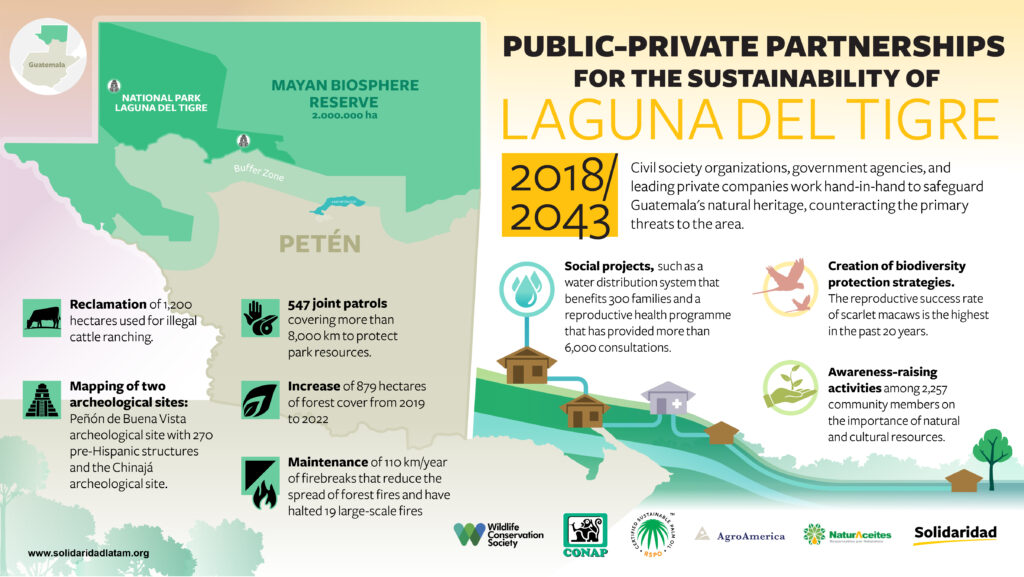
According to Vinicio Morales, the project coordinator at the Wildlife Conservation Society, “This project focuses on a highly vulnerable area in the southeastern sector of the park and promotes the protection of natural ecosystems of high biological importance.”
Efforts to conserve biodiversity support sustainable production

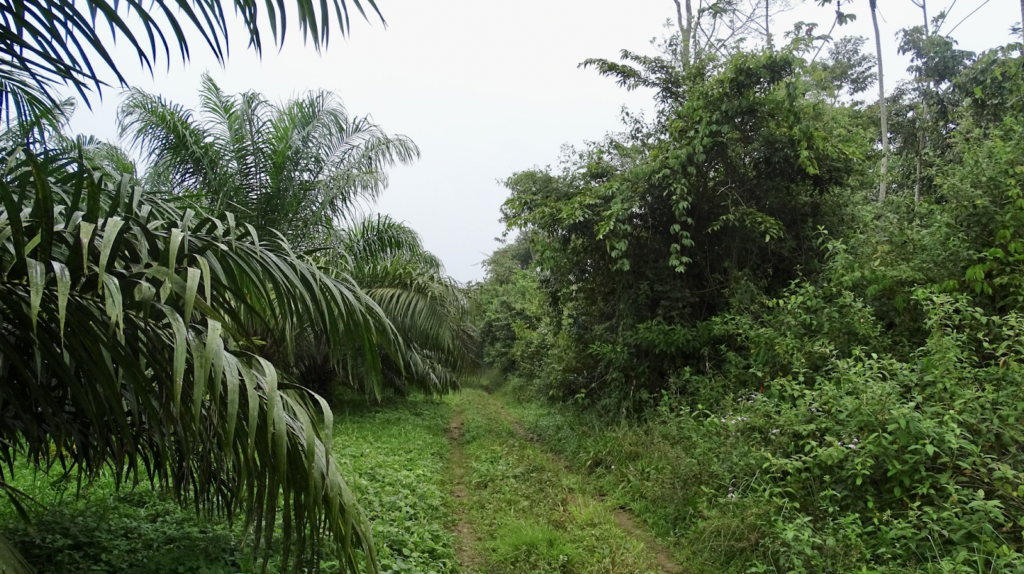
Sustainable oil palm production addresses profitability and the preservation of natural and social resources. The photographs show plantations that respect the forest remnants.
Around the world, palm oil production often has a negative impact on local ecosystems, as well as local communities. In Guatemala, palm oil producers participating in the RSPO have mobilized to invest resources into natural areas and conservation projects in a drive to create a sustainable palm oil industry. This unique effort to participate in a process that addresses local social, economic and environmental needs is a key element in the broad partnership which is helping to conserve large parts of the natural resources and biodiversity in Laguna del Tigre National Park.
What is new is that it allows for effective collaboration between private companies, the government, civil society and communities to conserve one of the priority sites for biodiversity conservation in the Maya Biosphere Reserve and SIGAP.
Julio Morales, Assistant Director, Wildlife Conservation Society
Public-private partnerships achieve sustainability goals
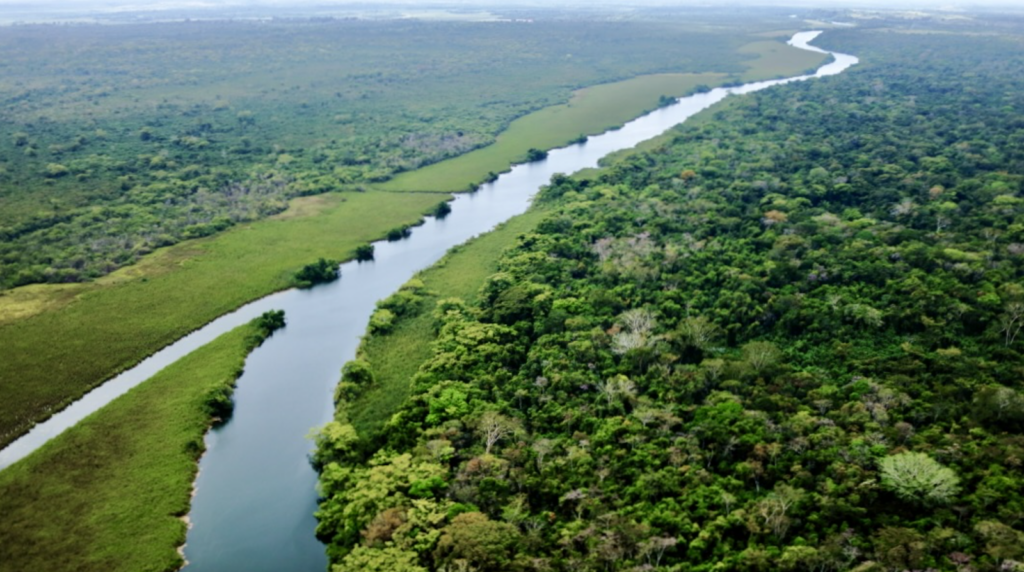
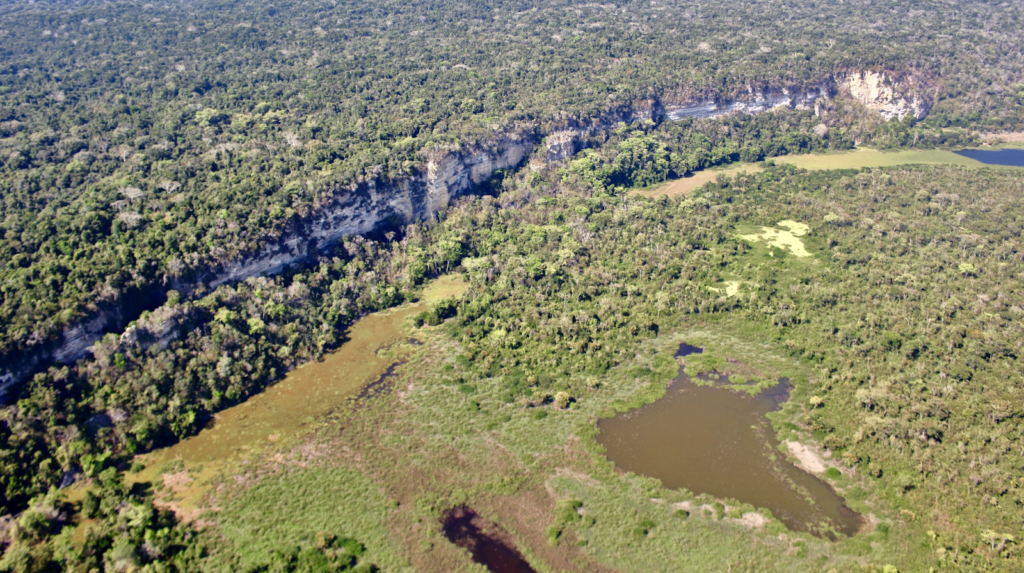

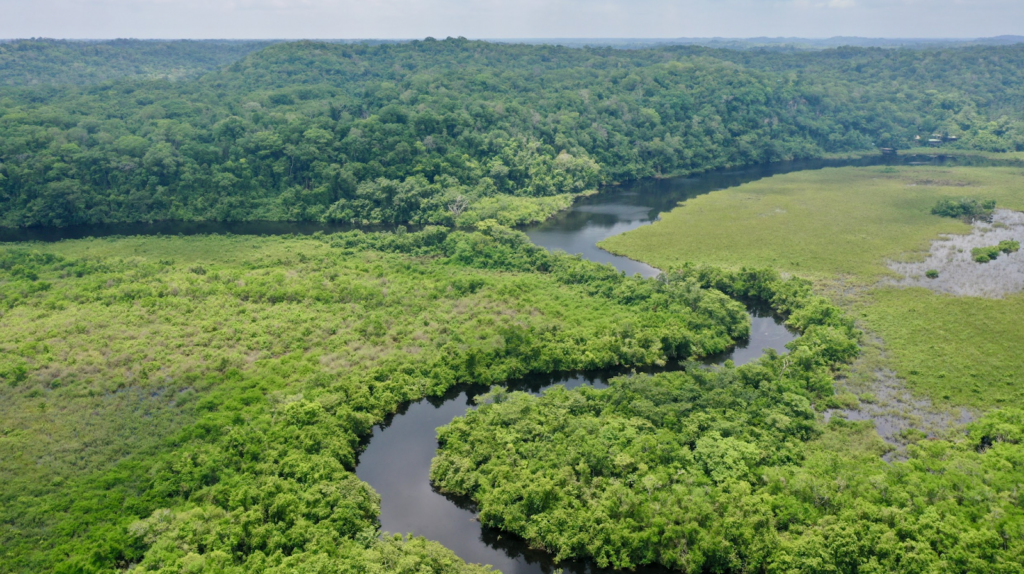
The protection and conservation of wetlands is critical to sustaining the livelihoods of communities and strengthening the survival of wildlife species at risk. (Photos courtesy of WCS)
Project management and public-private investment mechanisms also align with Guatemala’s national strategy on biological diversity. Its current goal is to preserve biodiversity, natural ecosystems, and cultural heritage in Laguna del Tigre National Park. CONAP manages this protected area and carries out actions in the field to achieve the following objectives:
- Protect and monitor endangered species and their habitat
- Maintain and protect natural ecosystems
- Continue collaboration between the Paso Caballos community and CONAP through the implementation of long-term joint socio-environmental activities

The RSPO believes the project could be scaled up in other regions and countries as part of the RSPO certification standard. (Photo by NaturAceites)
Preserving Mesoamerica’s largest wetlands
Laguna del Tigre National Park contains the largest wetland in Mesoamerica, and is rich in biodiversity. Among many threats, the area faces forest fires, illegal logging, illegal wildlife trafficking, and illegal cattle ranching. Solidaridad’s Biodiversity Conservation Project is part of the long-term response to address these problems.

To date, the project has protected and conserved 28,715 hectares of natural ecosystems, as well as species like the scarlet macaw, jaguar, jabiru, white turtle, crocodile, tapir, and wild boar.
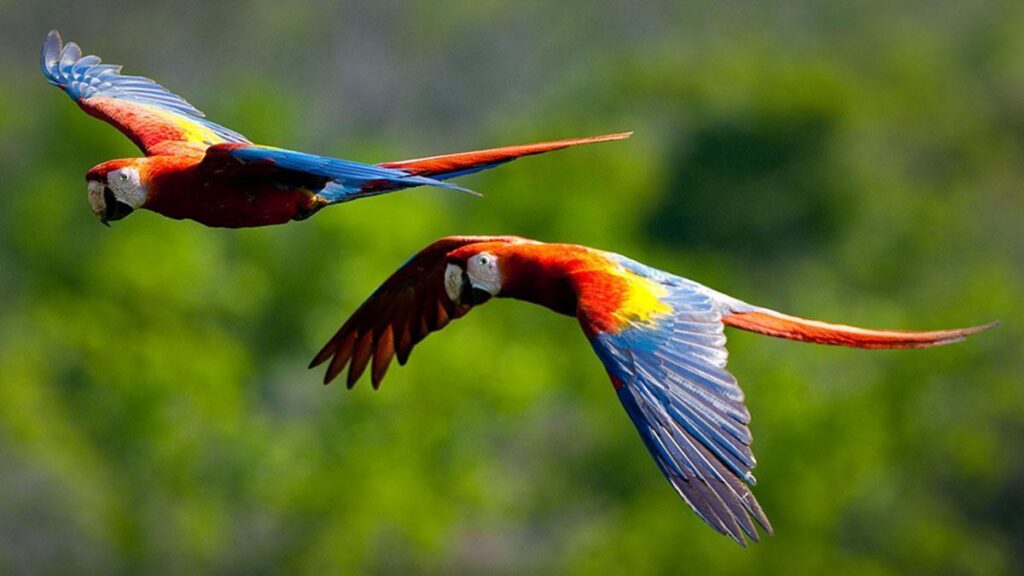
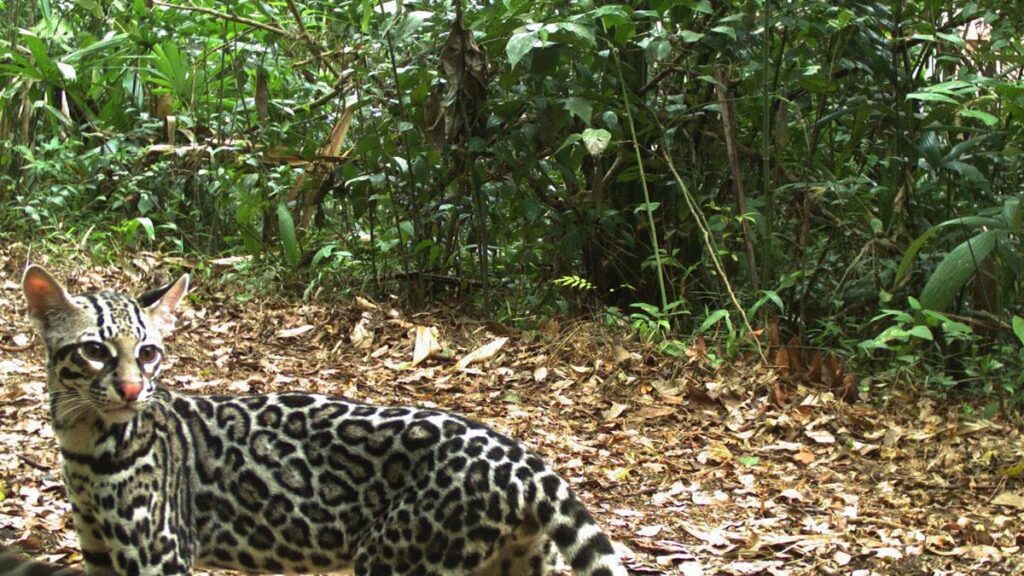
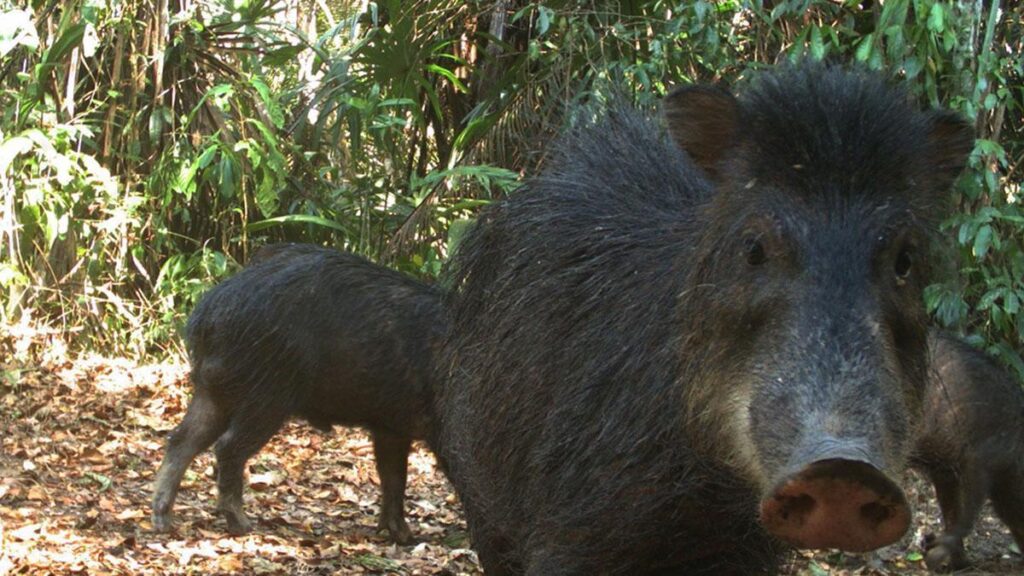
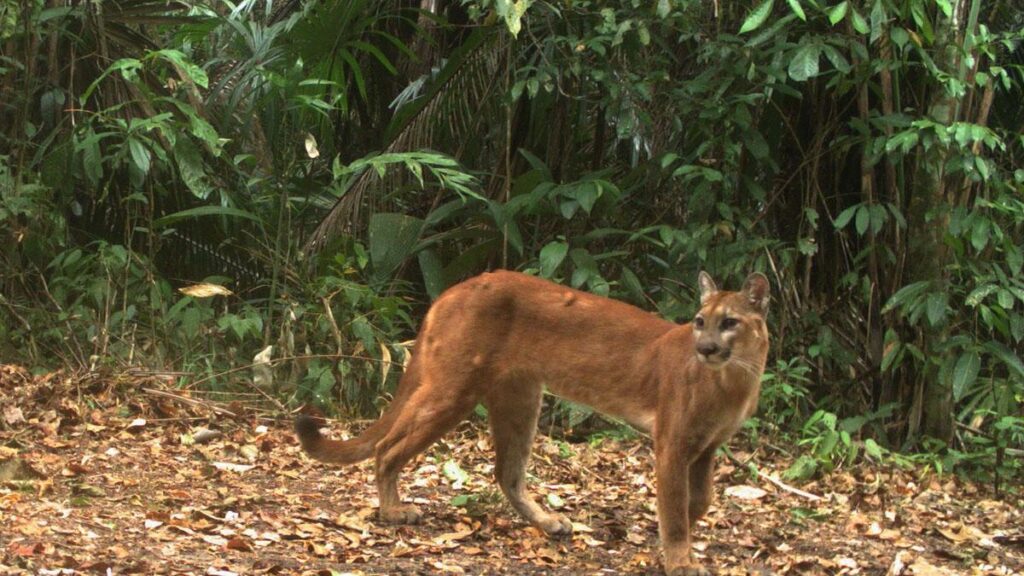
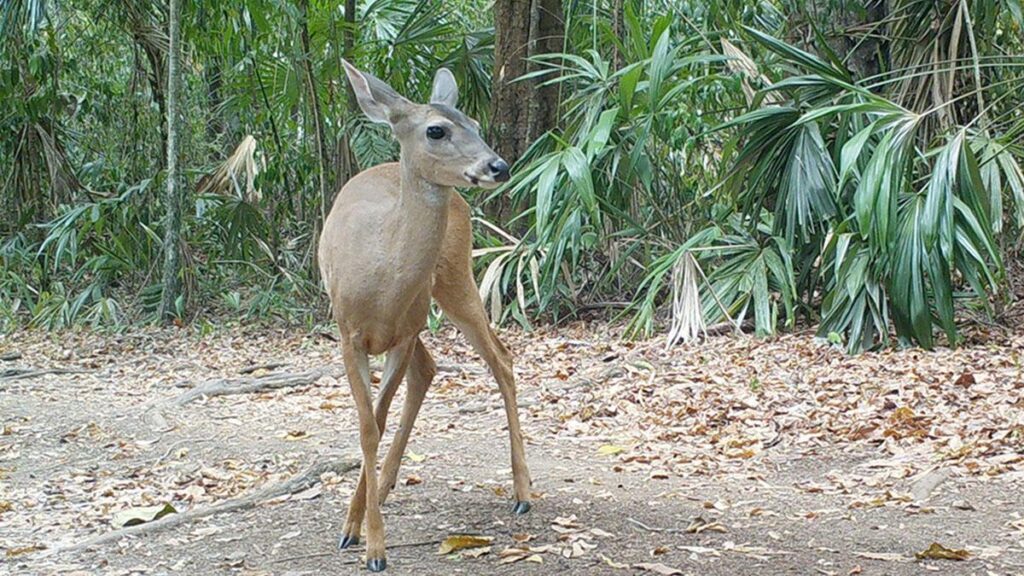
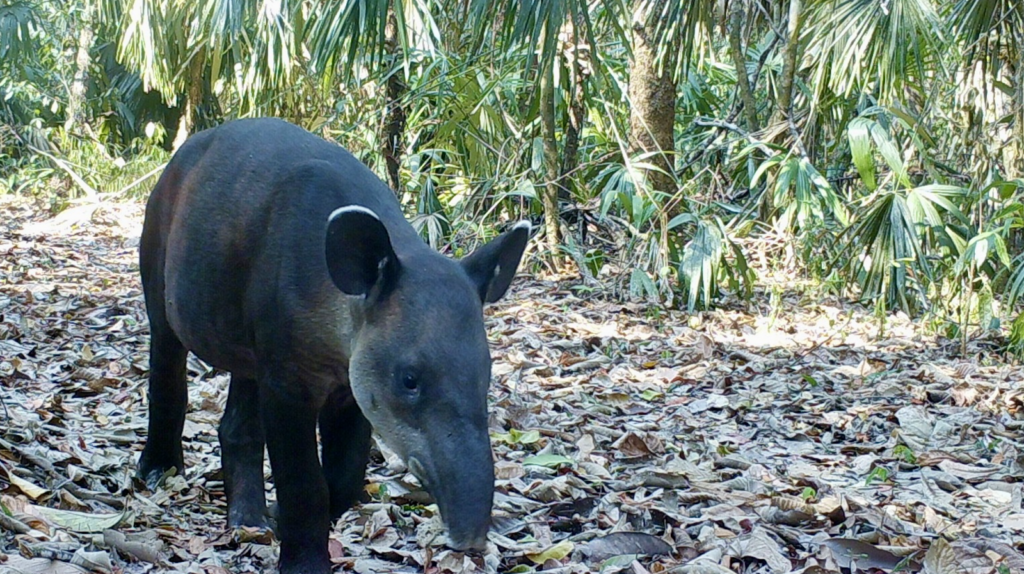
(Photos courtesy of the WCS)
During this project:
- We have strengthened and expanded the monitoring system for large mammals and white turtles.
- We have maintained natural forest cover and the integrity of natural ecosystems by containing deforestation and illegal logging, while reducing illegal activities and preventing and fighting forest fires.
- We have strengthened the presence and inter-institutional coordination for control and surveillance by CONAP, DIPRONA, and the Guatemalan Army.
- Through judicial orders, we have recovered usurped areas that were used for illegal cattle ranching.
- The 4th phase of the Conservation Agreement between CONAP and the community of Paso Caballos, the WCS, the Municipality of San Andrés, neighboring community organizations and other collaborators has been signed and implemented.
The corporate director at AgroAmerica, Javier Aguirre, says, “At AgroAmerica, we maintain regenerative practices in our operations. We know that together we can have a greater impact on this important protected area.”
Monitoring plays a key role in achieving sustainability
Since 2019, Solidaridad’s pioneering programme in the park has maintained a network of stations of 23 sampling points for mammal monitoring. Our achievements include the following:
- We recorded 30 different jaguars in the last 5 years, along with a set of abundant prey species that allow us to maintain stable populations of these elusive animals.
- We have documented the presence of the white-lipped peccary, a mammal that is often the first to disappear in the face of human encroachment.
- We monitored the nesting success of scarlet macaws, recording the highest nesting success and reproductive rate in the last 20 years.
- To date we have released 47 scarlet macaws, with another 22 birds waiting to be released in 2023.
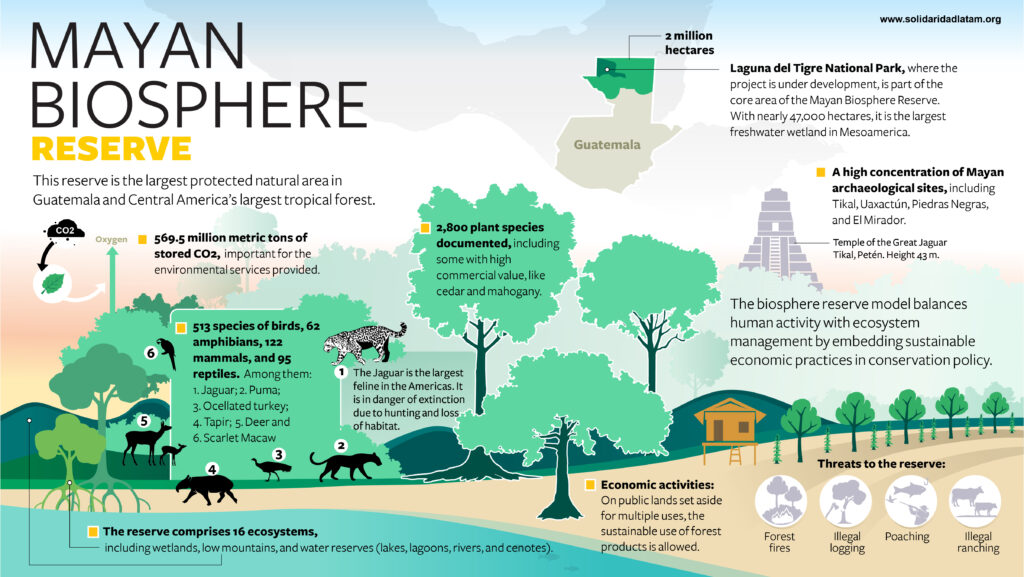
Biodiversity conservation is an integral part of our sustainability strategy.
Werner Tánchez, Environment and Certifications Manager at NaturAceites
Strategies for environmental protection
Multiple activities have been carried out to support the National Council of Protected Areas in the project area. Efforts have included group patrols, forest fire prevention and control, surveillance overflights, raising community awareness and creating wilderness protection strategies. The main objective is to combat deforestation, illegal logging, poaching and illegal fishing, forest fires, illegal cattle ranching, and land usurpation.


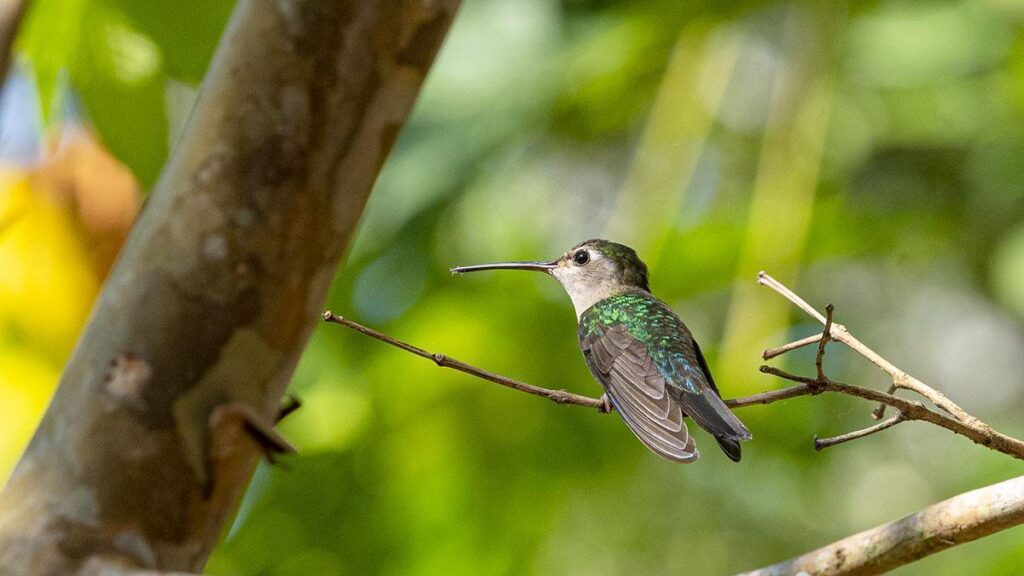
(Photos by NaturAceites)
Control and prevention of forest fires
As part of the activities for the prevention and control of forest fires, the Forest Fire Early Warning System (SATIF) has been implemented in the community of Paso Caballos. Additionally, five annual forest fire prevention and control plans have been developed in collaboration with key partners in the area. These plans are aimed at defining the activities to be carried out during the agricultural burning season and also the summer season, when the ecosystems are most susceptible to forest fires.
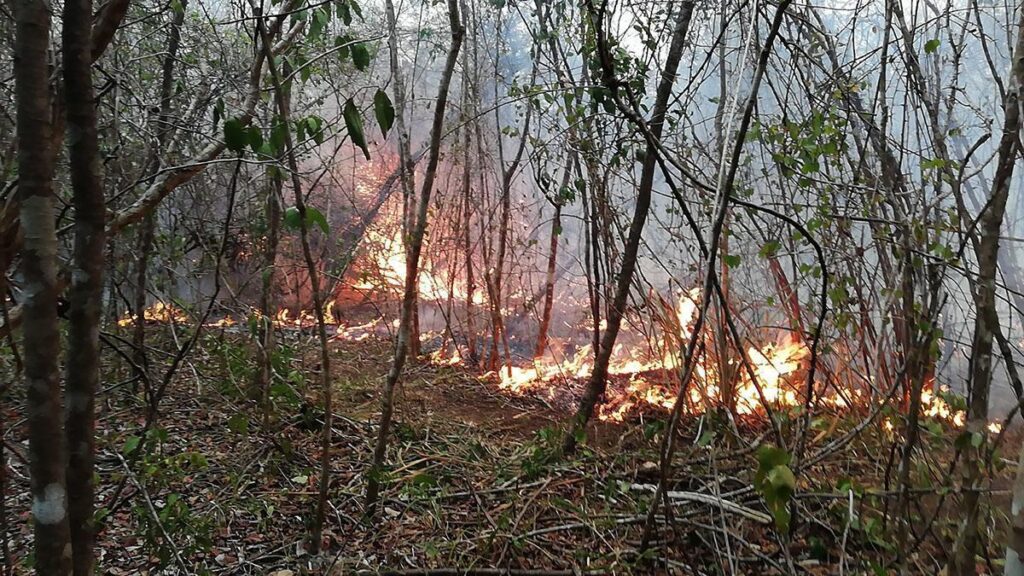
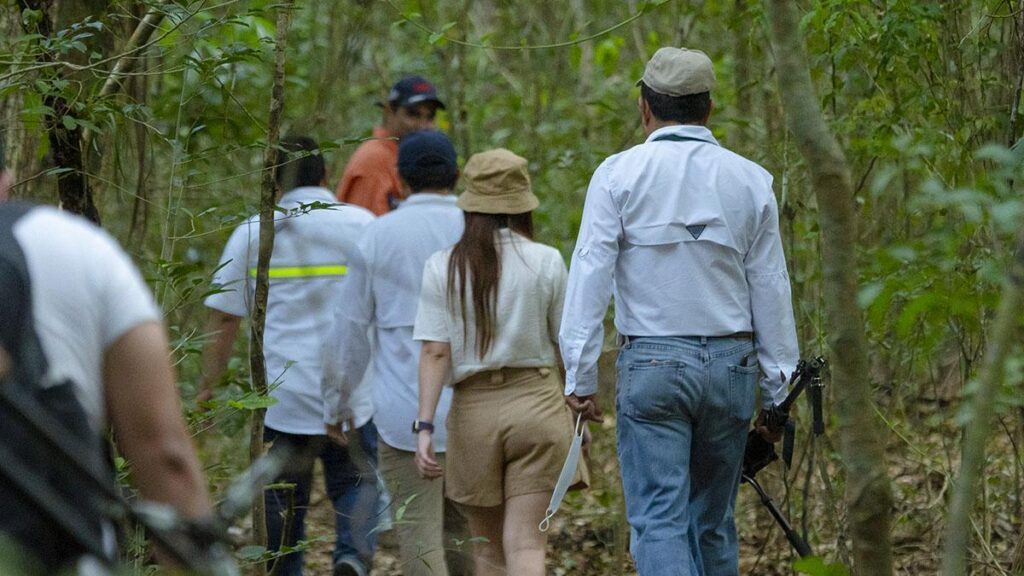
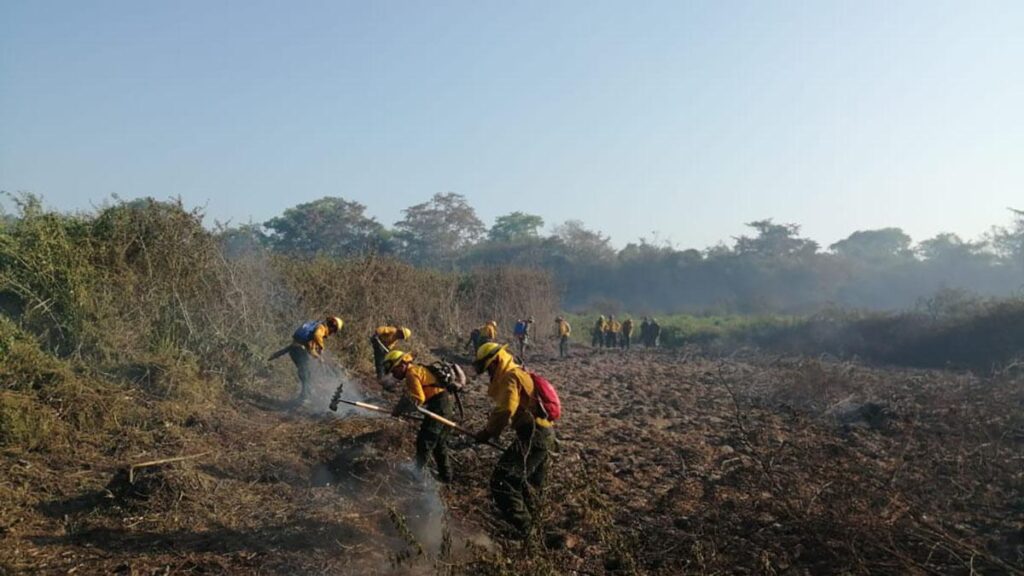
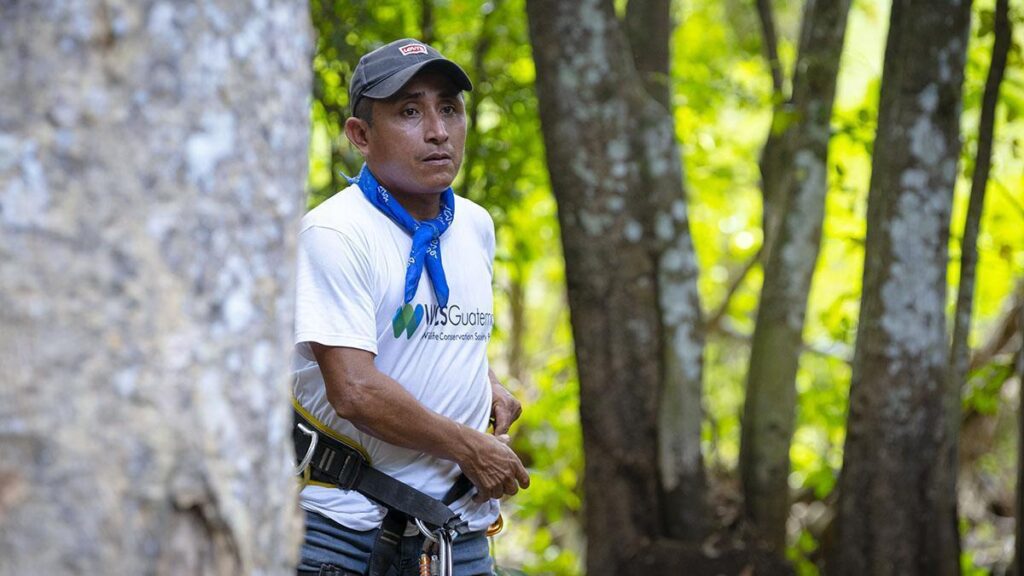
(Photos by NaturAceites and WCS)
The inter-institutional coordination efforts of CONAP, the technical support of WCS, the investment of private companies, and the community work in Paso Caballos have led to a positive result for the southeastern sector of Laguna del Tigre National Park, where no hectares of forest bordering the community agricultural polygon have been affected by forest fires.
The Community Development Council (COCODE) has also issued a self-declaration of “No to illicit wildlife trafficking”. This helps the community join initiatives against wildlife trafficking in the sector.
Community participation helps achieve sustainability objectives
One of the project’s contributions has been to support the members of the Paso Caballos community with travel expenses, telephone credit and transportation so that they can lobby Guatemalan government institutions to improve the living conditions of the local population.
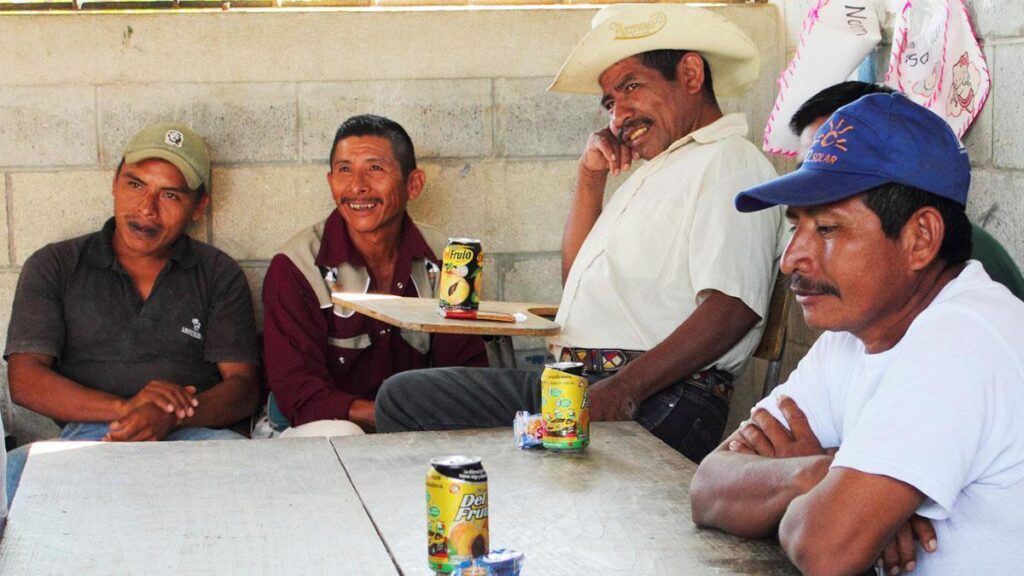
Social and environmental development activity agreements between CONAP and the Paso Caballos community contribute to conservation in the project area (Photo by WCS).
As a result of this support, the Solidaridad project has helped with the following social projects:
- Installation of a water distribution system at the household level benefiting more than 300 families, which also contributes to the reduction of river pollution
- Establishment of a primary and secondary school in Barrio La Pista
- Repair and ongoing maintenance of a 20 km stretch of road leading to the Paso Caballos community
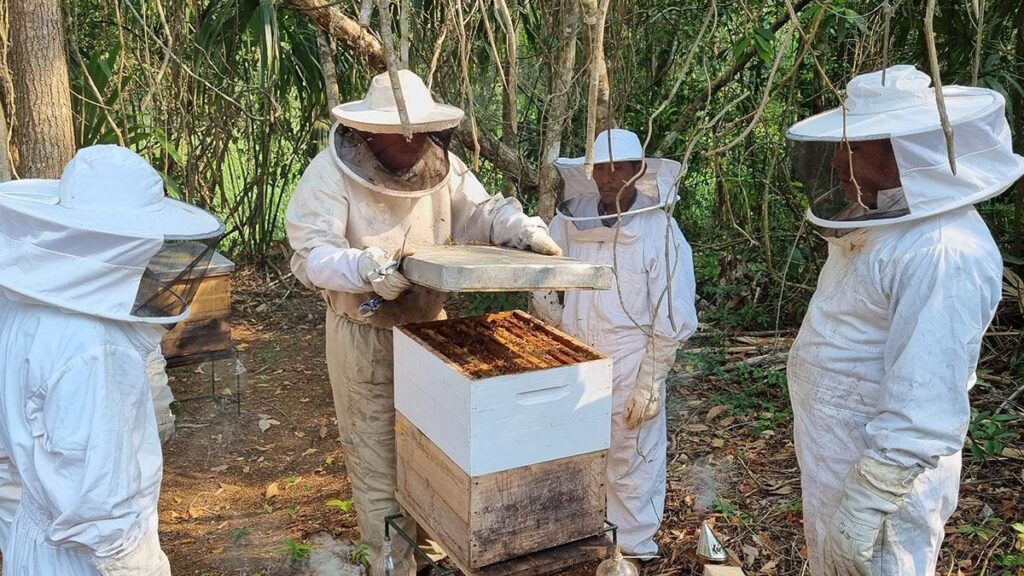
Beekeeping as a sustainable livelihood. A school apiary has 25 active hives (Photo by NaturAceites).
Additionally, the project has strengthened the care programme of the Ministry of Public Health and Social Assistance of the Government of Guatemala, and provided a total of 30 months of healthcare to the local population, including more than 6,500 consultations.
Due to the participation of Paso Caballos, a Mayan Q’eqchi’ community within the park, CONAP is prepared to sign a Permanency Agreement to establish a strong, lasting collaboration with the community to encourage conservation, while promoting social development and sustainable management practices.
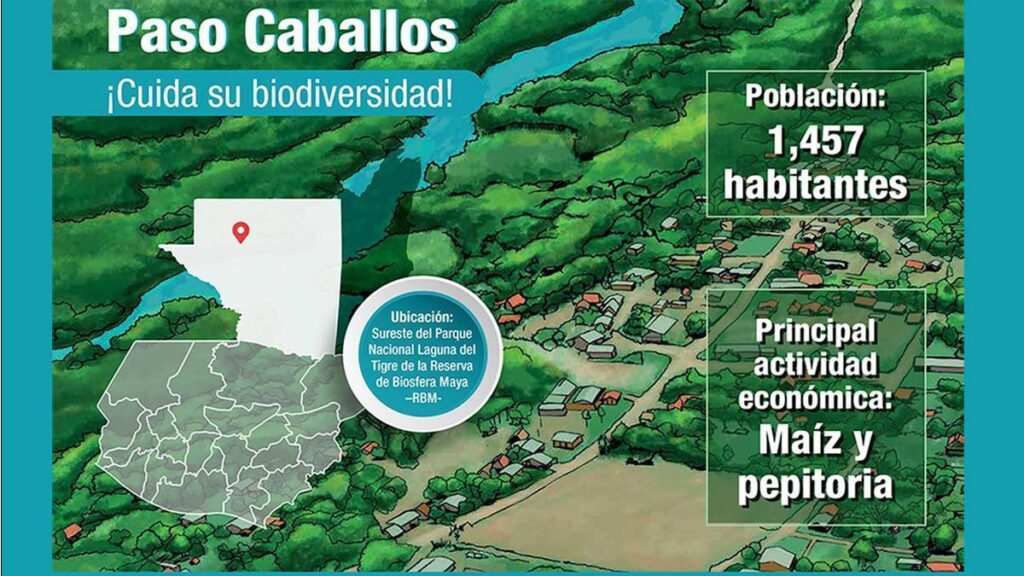
Paso Caballos is a Mayan Q’eqchi’ community located in the municipality of San Andrés, Petén. Its efforts to prevent and control forest fires while monitoring threats to biodiversity, have allowed the conservation of surrounding forests (WCS).
Everyone can be part of this effort to preserve our planet.
Unsustainable agriculture and land use threatens the Laguna del Tigre National Park and the entire Maya Biosphere Reserve. We can all support the preservation of these important natural spaces.
By making sustainability become the norm, not only in palm oil production but also in other areas, we could replicate these mechanisms to scale up investments and benefits in biodiversity conservation.
José Luis López, Country Manager, Solidaridad Guatemala
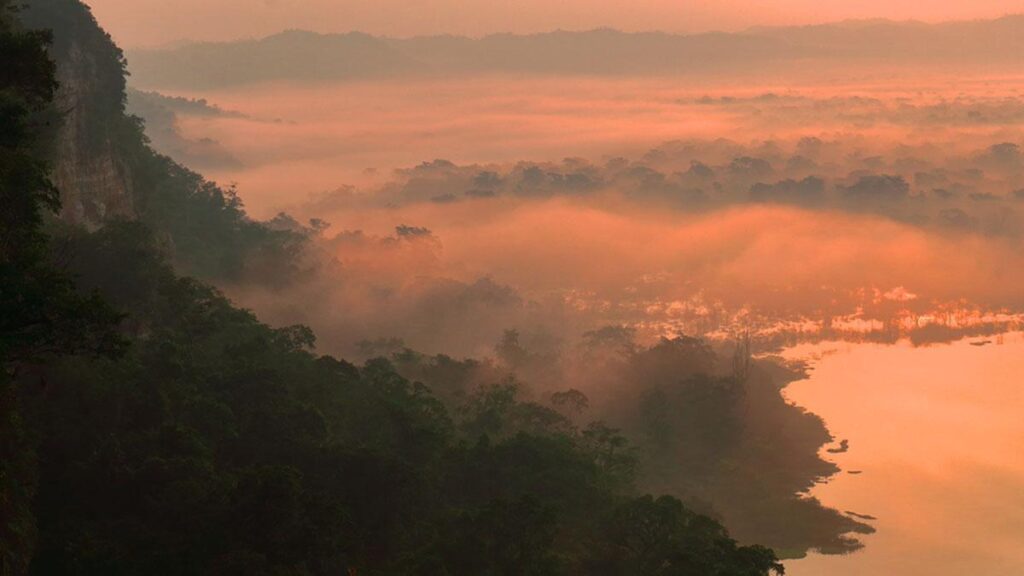
(Photo by WCS)

